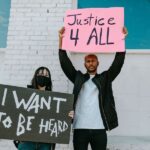
In Camden County v. Sweatt, the University of Georgia School of Law’s First Amendment Clinic filed an amicus brief asking the Georgia Supreme Court to affirm Georgians’ constitutional petition-and-referendum power to veto legislative decisions by their county commissioners that go against the will of the people they were elected to represent.
On February 7, 2023, the Georgia Supreme Court did exactly that.
Ruling on an issue of first impression, the State’s high court held that Ga. Const. art. IX, § 2, ¶ 1(b)(2) gives the county electorate the petition-and-referendum power to repeal ordinances, resolutions, or regulations enacted by a county’s governing authority.
This outcome has profound effects on democratic governance in Georgia. And in the particular case of Camden County v. Sweatt, the high court’s ruling upholds voters’ rejection of Camden County’s resolution to purchase land for building a launch site for private space rockets.
Case Background
On March 8, 2022, a referendum vote was held in Camden County, Georgia pursuant to Ga. Const. art. IX, § 2, ¶ 1(b)(2). On that day, 72% of participating voters cast their ballot in favor of repealing all resolutions of the County Board of Commissioners approving purchase of land to build a facility (“the Spaceport”) for launching private, commercial space rockets over Cumberland Island National Seashore.
This referendum vote was the culmination of years of community organizing by County residents, including the Clinic’s clients and friends-of-the-court Ben Goff and Jacqueline Eichhorn. They and many other County electors had long opposed the Spaceport because of the damaging impact they believe it will have on Georgia’s fragile coastal marsh, Cumberland Island National Seashore, and on the quality of life of County residents whose homes sit near or in the path of the envisioned rocket launches.
Prior to the referendum vote, Goff, Eichhorn, and others used every available channel of representative government to make their opposition to the Spaceport heard and heeded, but the Camden County Commissioners refused to engage with community members. They instead continued to move forward with the Spaceport project, spending — as of the time of the amicus filing — more than $10 million in county taxpayer funds on the project.
Shut out by their elected officials, Goff, Eichhorn, and others waged a grassroots campaign. Over the course of more than two years, they succeeded in collecting the signatures of 10% of registered Camden County voters in support of a petition for a referendum vote on the Commissioners’ decision to purchase land for the Spaceport. Voters spoke loud and clear in this referendum that they did not support the County’s resolutions to purchase the land. But instead of respecting this outcome, Camden County challenges the constitutionality of the referendum.
In support of the referendum and consistent with the First Amendment right to petition, the Clinic argued that the Georgia Constitution plainly reserves for the people the power of a ballot veto over their county governing authorities’ legislative decisions, if — and only if — a sufficient percentage of the county electorate agree that such a vote should be held. The Clinic further argued that the referendum power is essential if county residents are to hold their commissioners accountable during non-election years and that the option of a referendum is fundamentally consistent with democratic principles of checks-and-balances.
As reported in the Georgia Recorder, the amicus brief emphasized that “[i]nvalidating this direct-democracy safety valve embedded in our state’s Constitution will strip, not just the residents of Camden County, but the people in all 159 Georgia counties of their ability to hold their county commissioners accountable more than once every four years. . . While county commissioners are small in number, they wield tremendous power to legislatively affect the lives of their constituents.”
The amicus brief, written by Clinic Director Clare R. Norins, was filed on behalf of Camden County residents Ben Goff and Jacqueline Eichhorn, the Georgia First Amendment Foundation, and the UGA First Amendment Clinic.
Many thanks to Clinic student Liam Wall (2L) for his contributions to the brief and for the support of the Southern Environmental Law Center.
Related press:
Russ Bynum, “Vote to block spaceport upheld by Georgia’s high court,” Associated Press (Feb. 7, 2023)
Mary Landers, “Georgia Supreme Court to weigh validity of Spaceport Camden vote,” Georgia Public Broadcasting (Oct. 5, 2022)
Gordon Jackson, “Supreme Court postpones spaceport referendum appeal,” Yahoo!News (Aug. 30, 2022)
Stanley Dunlap, “Georgia Supreme Court’s spaceport case pits 1st Amendment vs. county home rule,” Georgia Recorder (July 6, 2022)

The Issue
Free Speech
The First Amendment protects the right of private individuals to engage in speech and expression without being censored or punished by the government because of their viewpoint. While the government may constitutionally regulate the time, place, and manner of private speech in public forums it must do so in a viewpoint-neutral manner and, depending on…
Explore Issue